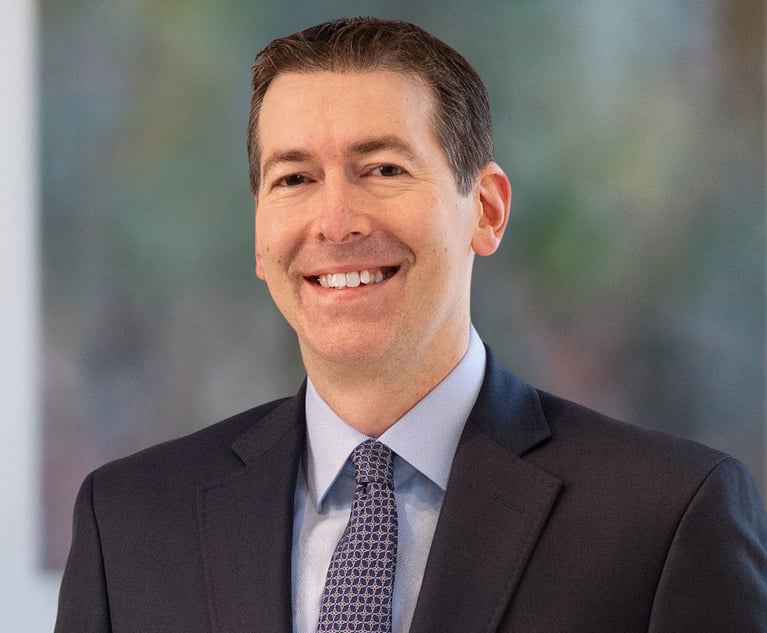In UCLA Stabbing Case, California's High Court Finds Universities Have Duty to Protect Students
The ruling that comes in the wake of a recent wave of school campus violence weighs in on when universities can be held liable for student-on-student violence.
March 22, 2018 at 05:52 PM
4 minute read

In the wake of the recent wave of campus violence, the California Supreme Court on Thursday weighed in on when universities can be held liable for attacks on students.
In a case brought on behalf of Katherine Rosen, a UCLA student who was stabbed by a classmate in a chemistry lab in 2009, the court held that universities have a “special relationship” with students and, therefore, have a duty to protect them from foreseeable violence in “curricular activities.”
“Considering the unique features of the college environment, we conclude postsecondary schools do have a special relationship with students while they are engaged in activities that are part of the school's curriculum or closely related to its delivery of educational services,” wrote Justice Carol Corrigan on behalf of the six-judge majority. “We conclude that violence against students in the classroom or during curricular activities, while rare, is a foreseeable occurrence, and considerations of public policy do not justify categorically barring an injured student's claims against the university.”
The decision breathes new life into Rosen's case against the UC Regents. The Second District Court of Appeal had previously held in a 2-1 decision in 2015 that UCLA had no duty to protect Rosen, a decision which reversed a summary judgment ruling by Judge Gerald Rosenberg of Los Angeles Superior Court.
Rosen said in an email shared by one of her lawyers that she was “thrilled and relieved” by the decision.
“I am hopeful it will provide the impetus for colleges throughout the country to mobilize their resources to develop and implement real, effective strategies to protect their students,” Rosen said.
Rosen was the victim of a grisly attack by Damon Thompson, a student whom UCLA officials had been monitoring after he reported hearing voices. According to Thursday's decision, a campus psychologist had diagnosed Thompson with possible schizophrenia and major depressive disorder. A university “Response Team” charged with tracking the well-being of certain students had been discussing Thompson at its weekly meetings before his Oct. 8, 2009, attack.
Thompson, without provocation, stabbed Rosen in the chest and neck with a kitchen knife during a chemistry lab session. She was taken to the hospital with life-threatening injuries. She's since recovered, completed her degree at UCLA, and has gone on to medical school, where she's in her second year of residency. Thompson pleaded not guilty by reason of insanity to attempted murder and was admitted to a state mental hospital, where he was diagnosed with paranoid schizophrenia.
UCLA spokesman Ricardo Vazquez said in an emailed statement that the school sympathized with the trauma Rosen and her family endured, and that student safety is a school priority.
“We are disappointed in the California Supreme Court's decision, and we are also concerned about the decision's potential impact on higher education in California and beyond,” Vazquez said. “The university is committed to providing an environment that is conducive to learning and that provides appropriate resources to support our students in need.”
The school was represented by counsel at Maranga & Morgenstern in Woodland Hills and Greines, Martin, Stein & Richland in Los Angeles.
Rosen is represented by Brian Panish and Deborah Chang of Panish Shea Broyles in Los Angeles and Napa appellate specialist A. Charles Dell'Ario.
Panish called the decision “a win for all California students.”
“Despite all the representations they make to students and their parents, UC maintained they don't have a duty to protect students, which to me is outrageous,” Panish said. “The Supreme Court, they're with it. They're with the times. They see what's going on.”
Chang, Panish's colleague, said the decision is the first time a state Supreme Court had taken up the issue of whether colleges owe their students a duty to protect them since the 2007 mass shooting at Virginia Tech.
In Thursday's decision, Justice Ming Chin filed a concurring opinion saying he joined the majority's judgment, but that he wouldn't extend a university's duty to warn or protect beyond the classroom.
This content has been archived. It is available through our partners, LexisNexis® and Bloomberg Law.
To view this content, please continue to their sites.
Not a Lexis Subscriber?
Subscribe Now
Not a Bloomberg Law Subscriber?
Subscribe Now
NOT FOR REPRINT
© 2025 ALM Global, LLC, All Rights Reserved. Request academic re-use from www.copyright.com. All other uses, submit a request to [email protected]. For more information visit Asset & Logo Licensing.
You Might Like
View All
California Walnut Grower and German Investment Firm Vie for Lead Plaintiff Status in Super Micro Securities Action

Judge Recommends Disbarment for Attorney Who Plotted to Hack Judge's Email, Phone
3 minute read

Orrick Hires Longtime Weil Partner as New Head of Antitrust Litigation
Trending Stories
- 1Uber Files RICO Suit Against Plaintiff-Side Firms Alleging Fraudulent Injury Claims
- 2The Law Firm Disrupted: Scrutinizing the Elephant More Than the Mouse
- 3Inherent Diminished Value Damages Unavailable to 3rd-Party Claimants, Court Says
- 4Pa. Defense Firm Sued by Client Over Ex-Eagles Player's $43.5M Med Mal Win
- 5Losses Mount at Morris Manning, but Departing Ex-Chair Stays Bullish About His Old Firm's Future
Who Got The Work
J. Brugh Lower of Gibbons has entered an appearance for industrial equipment supplier Devco Corporation in a pending trademark infringement lawsuit. The suit, accusing the defendant of selling knock-off Graco products, was filed Dec. 18 in New Jersey District Court by Rivkin Radler on behalf of Graco Inc. and Graco Minnesota. The case, assigned to U.S. District Judge Zahid N. Quraishi, is 3:24-cv-11294, Graco Inc. et al v. Devco Corporation.
Who Got The Work
Rebecca Maller-Stein and Kent A. Yalowitz of Arnold & Porter Kaye Scholer have entered their appearances for Hanaco Venture Capital and its executives, Lior Prosor and David Frankel, in a pending securities lawsuit. The action, filed on Dec. 24 in New York Southern District Court by Zell, Aron & Co. on behalf of Goldeneye Advisors, accuses the defendants of negligently and fraudulently managing the plaintiff's $1 million investment. The case, assigned to U.S. District Judge Vernon S. Broderick, is 1:24-cv-09918, Goldeneye Advisors, LLC v. Hanaco Venture Capital, Ltd. et al.
Who Got The Work
Attorneys from A&O Shearman has stepped in as defense counsel for Toronto-Dominion Bank and other defendants in a pending securities class action. The suit, filed Dec. 11 in New York Southern District Court by Bleichmar Fonti & Auld, accuses the defendants of concealing the bank's 'pervasive' deficiencies in regards to its compliance with the Bank Secrecy Act and the quality of its anti-money laundering controls. The case, assigned to U.S. District Judge Arun Subramanian, is 1:24-cv-09445, Gonzalez v. The Toronto-Dominion Bank et al.
Who Got The Work
Crown Castle International, a Pennsylvania company providing shared communications infrastructure, has turned to Luke D. Wolf of Gordon Rees Scully Mansukhani to fend off a pending breach-of-contract lawsuit. The court action, filed Nov. 25 in Michigan Eastern District Court by Hooper Hathaway PC on behalf of The Town Residences LLC, accuses Crown Castle of failing to transfer approximately $30,000 in utility payments from T-Mobile in breach of a roof-top lease and assignment agreement. The case, assigned to U.S. District Judge Susan K. Declercq, is 2:24-cv-13131, The Town Residences LLC v. T-Mobile US, Inc. et al.
Who Got The Work
Wilfred P. Coronato and Daniel M. Schwartz of McCarter & English have stepped in as defense counsel to Electrolux Home Products Inc. in a pending product liability lawsuit. The court action, filed Nov. 26 in New York Eastern District Court by Poulos Lopiccolo PC and Nagel Rice LLP on behalf of David Stern, alleges that the defendant's refrigerators’ drawers and shelving repeatedly break and fall apart within months after purchase. The case, assigned to U.S. District Judge Joan M. Azrack, is 2:24-cv-08204, Stern v. Electrolux Home Products, Inc.
Featured Firms
Law Offices of Gary Martin Hays & Associates, P.C.
(470) 294-1674
Law Offices of Mark E. Salomone
(857) 444-6468
Smith & Hassler
(713) 739-1250






